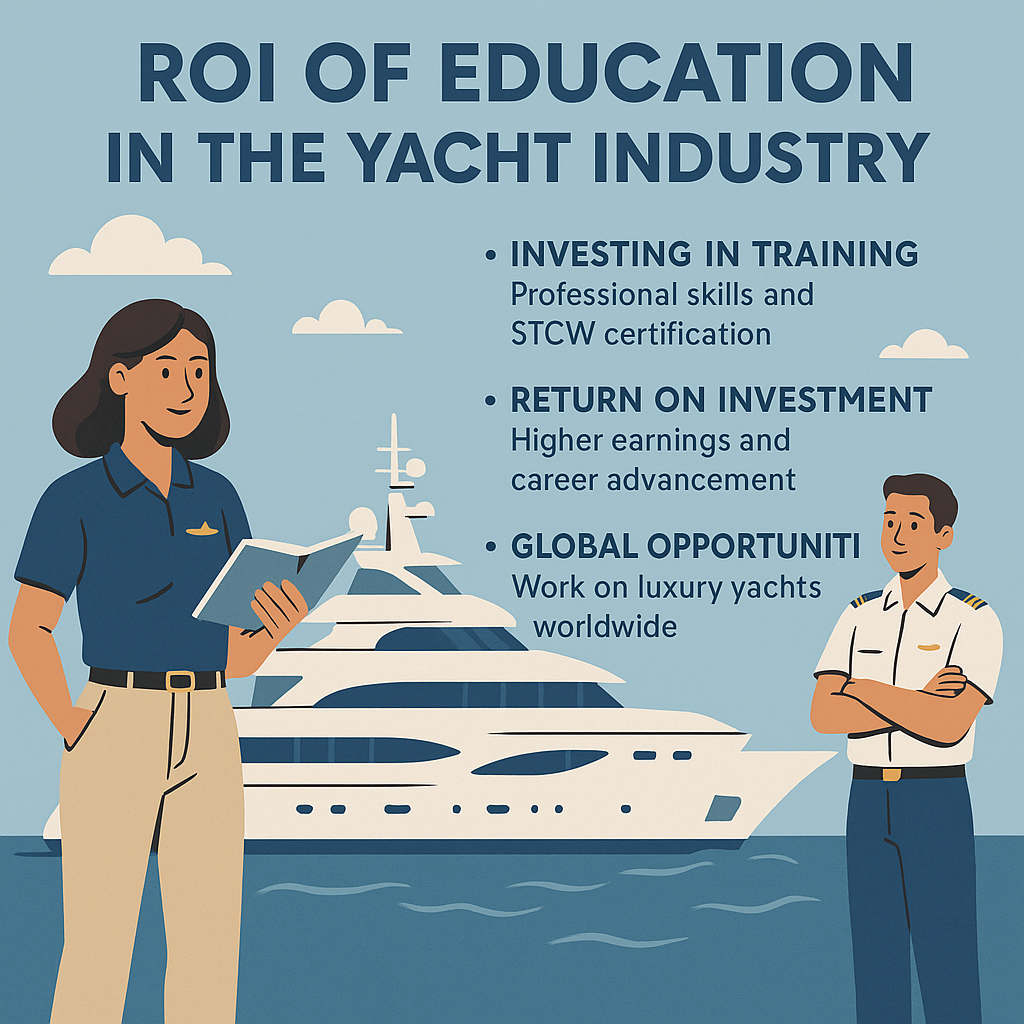
The luxury yacht industry is one of the most competitive and rewarding sectors within the global maritime landscape. In recent years, Indonesia has begun to emerge as a sought-after destination for yacht tourism, offering pristine waters, world-class dive sites, and an unparalleled cultural backdrop. As this sector grows, the demand for highly skilled, internationally accredited crew members has never been greater.
In this evolving market, Jiva Yacht Management is setting the benchmark not only in the management of vessels but also in nurturing talent through world-class education and training programmes. For aspiring crew members and maritime professionals, investing in such training is more than a cost — it is a strategic decision with measurable returns.
Education as an Investment, Not an Expense
Entering the yacht industry without proper training is akin to attempting to sail without a compass. The standards are uncompromising, with owners and charter guests expecting a seamless blend of luxury service, technical competence, and unwavering safety standards.
Jiva Yacht Management recognises that education in this industry is not merely about acquiring a certificate; it is about cultivating a professional mindset that meets — and often exceeds — international expectations. Training in line with STCW (Standards of Training, Certification, and Watchkeeping) ensures that candidates are not only employable but competitive in the global marketplace.
When approached from a return-on-investment perspective, the financial benefits can be compelling. The initial outlay for professional maritime training, though significant, is quickly offset by higher earning potential, faster career progression, and greater job security.
How Jiva Maximises ROI for Trainees
1. Internationally Recognised Credentials
Jiva Yacht Management’s training adheres to global maritime safety and operational standards, ensuring that graduates are equipped to work on yachts worldwide. This opens the door to a far wider range of employment opportunities than local certification alone could provide.
2. Bespoke Career Pathways
Rather than a one-size-fits-all approach, Jiva tailors its training pathways according to the trainee’s career aspirations — whether they wish to become deck crew, engineers, stewards, chefs, or even yacht managers. This specialisation shortens the time it takes to secure roles aligned with personal strengths and goals, thereby accelerating the ROI timeline.
3. Networking and Placement Support
Connections matter in the yacht industry. Jiva’s established relationships with yacht owners, captains, and charter companies mean that trainees gain access to a valuable professional network, often leading to placements soon after qualification.
4. Continuous Skills Development
The company promotes lifelong learning by encouraging crew to upgrade their skills through advanced courses and cross-disciplinary training. This commitment to continuous improvement not only boosts employability but also allows for salary progression over time.
The Numbers Behind the ROI
Let us consider a practical example. An entry-level steward or deckhand with no formal training might earn a modest income in a local context. In contrast, a crew member with STCW-compliant training, hospitality skills, and international exposure can secure positions on luxury yachts earning several times that amount — with additional tips, bonuses, and travel perks.
While the cost of a comprehensive yacht crew training programme through Jiva may amount to several thousand pounds, many graduates recoup this investment within their first year of full-time employment. For those who pursue long-term careers, the cumulative financial return can be exponential.
Career Growth Beyond the Deck
A crucial aspect of ROI in yacht industry education is long-term career mobility. Roles on board are just the beginning. With experience and additional training, crew members can transition into senior positions such as Chief Steward, Chief Engineer, First Mate, or even Captain. Others may move into onshore positions in yacht brokerage, charter management, or maritime consultancy.
Jiva Yacht Management actively prepares trainees for these trajectories by instilling leadership skills, business acumen, and an understanding of maritime regulations and client relations. This broader skill set ensures that when crew members choose to transition ashore, they remain competitive in related sectors.
The Broader Impact: Indonesia’s Position on the Global Stage
The ROI of yacht industry education extends beyond individual gain. By producing internationally competent professionals, Jiva is contributing to Indonesia’s reputation as a credible player in the global yachting arena. Well-trained local crew not only fill roles on foreign-flagged yachts but also elevate the service standards of domestic operations, making Indonesia more attractive to high-net-worth visitors.
This creates a multiplier effect — more yacht arrivals, increased tourism spending, and greater demand for skilled maritime labour. The benefits ripple through related industries such as hospitality, logistics, and marine engineering, further boosting the nation’s economic standing.
Final Thoughts
In a sector where excellence is non-negotiable, the right education is the most powerful investment an aspiring yacht professional can make. Jiva Yacht Management has demonstrated that with the proper training, guidance, and global vision, this investment yields not only rapid financial returns but also sustainable career growth and international opportunities.
For those willing to commit to the discipline, professionalism, and continuous learning that the yacht industry demands, the path to a rewarding career — both financially and personally — is well within reach. With Jiva’s world-class programmes, that journey begins on solid ground, guided by a company that is as committed to the success of its people as it is to the excellence of its vessels.
